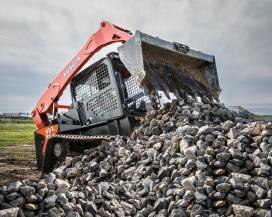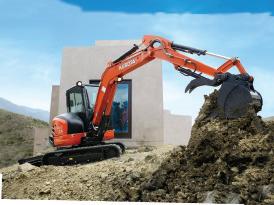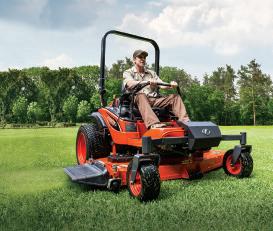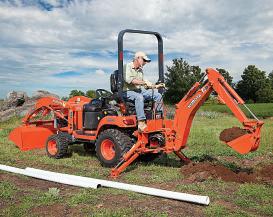
7 minute read
The Impact of COVID
Brad Rayburn, MRWA Circuit Rider
Over the last couple of years, COVID has impacted everyone in some way, and by now most of us know someone that has had the virus. Initially, the country was shut down. People started working from home and some still are. I thought (or hoped) when the states opened back up things would go back to normal. The mask mandates that were implemented during the shutdown became relaxed and it was optional to wear, or not to wear, a mask. The mass distribution of the vaccine was offered to those that wanted to take it, and for a brief time, it seemed that people became comfortable again. Many people, including myself, fought the media storm of COVID and all the mandates that came with the virus. In early October 2021, COVID found me and showed me how misinformed I had been. Not only did I get the virus, but eight other people, immediate family members of mine, that I was around contracted the virus. Over the course of those weeks, I was asked numerous times if I was vaccinated? No, I was not vaccinated. The questions I ask myself, “If I had been vaccinated, would I have gotten the virus? Would I have given my family COVID?” Unfortunately, dealing with COVID is not something that is going to go away, and it is something that all of us are going to have to deal with in one way or another. One major effect of COVID is that we are all facing supply and demand issues and increasing product costs.
Advertisement
It seems like the cost of everything has substantially increased and some things that were once easily obtained no longer are and, in some cases, simply unaffordable. Water/wastewater systems are having to adjust how they are accustomed to doing things due to this pandemic. Two of the biggest impacts for water/wastewater systems have been the rising cost of materials and the shortfall in supply. I contacted a water supply company to ask how much materials had increased in price, and if they were having trouble getting some materials. The answer was yes and yes.
Brass has risen 15-20%, a meter setter that was $100 before COVID is now closer to $140 and takes 6 weeks to get. Rectangle meter boxes have increased in price by 40%. Water meters have not increased but they could take 3 months to receive. Ductile iron fittings (mechanical joints) are out of stock or hard to receive. It is hard to even get PVC pipe, and some companies have run out of poly tubing. In most cases water/wastewater supplies are obtainable, but it can take much longer to receive the materials. These shortages and longer lead times must be planned for now. With the increase of cost for supplies and so many unknowns on how much things will cost in the future, many systems are evaluating their water/sewer rates.
Water/Wastewater systems have had to act quickly to this by increasing the cost of new water/sewer connections to the customers paying for this service. That cost can be passed on to that individual, but when it comes to the cost of repair/replacement parts, such as, pumps, leak repair parts, water/sewer main replacements, chemicals, etc., that cost must be absorbed by every customer of the system. Over the years, I have written articles on water systems having a plan or being prepared for the unexpected. Before COVID, the unexpected was an ice storm, a tornado, a flood, etc. I certainly never thought a virus was the unexpected for which a system should prepare.
To deal with the rising cost of materials water/wastewater systems will need to evaluate their rates. Typically, this is done by doing a rate study. A rate study is done to determine how much the water/wastewater system will
need to raise rates or if they need to raise the rates. This rate study is done by using the following: • the most current budget • most recent year of actual revenues and expenses • gallons billed for 12 months consecutively water • gallons billed for 12 months consecutively wastewater
• current water/wastewater rates
• copy of latest audit report • bond documents for any outstanding debt on the water/wastewater system(s) • number of active customers
• any unusual circumstances.
Unusual Circumstances could be loss of a major user, new debt to be issued, major future upgrades that the system is facing, etc. That is the typical list for unusual circumstances before COVID but since COVID it is hard to predict what will happen.
The common question that people ask when doing a rate study, is how much do other water/wastewater systems charge? This is a difficult question because each system has different circumstances that cannot be compared to one another. For example, one system may have a water/ sewer loan while the other system does not have a loan. So many factors are involved during a rate study that comparing water rates to another water/wastewater system is not an effective way to factor in a rate increase. Personally, I see all sorts of different rates, in Missouri. Minimum water bills ranging from $20-$40 for 0-1000 gallons is common. And then $5-$20 per one thousand gallons for each additional 1000 gallons. Some water systems that purchase water from another system have a contract that they must purchase a certain amount of water whether they use the water or not. So many factors need to be included in a rate study and this pandemic has certainly made it more difficult to prescribe the needed water/wastewater rate increase.
Planning with ordering materials is more crucial now than ever before because it may take months to get that order. It seems there are more unanswered questions about COVID than what is known. It has caused exponential hardships for people and businesses. It has no barrier; large and small cities, and rural America have been impacted. The cost of things is not going to decrease anytime soon. For everything to continue to work properly, water/wastewater systems will still have to make the necessary repairs to the utility. Who knows how much water/wastewater will cost in the future? To provide a safe reliable resource systems have no choice but to increase the cost of that product to the customers. Currently, it seems that this is the new normal.
Conducting a rate study can be a daunting task, MRWA provides technical assistance with rate studies for Water/ Wastewater utilities. Please let MRWA know if you have any questions regarding rate studies or dealing with the impacts of COVID at your water/wastewater system.
Independent Representatives of Tnemec Company, Inc. tnemec.com MIDWEST COATING CONSULTANTS, INC. DUSTIN KEILBEY 816-806-6356 dkeilbey@tnemec.com TAYLOR BUERKY 816-590-5294 tbuerky@tnemec.com
COATING SOLUTIONS, LLC
MICHAEL CERUTTI 314-703-8042 mcerutti@tnemec.com
P.O. Box 4018, Ballwin, MO 63022-4018 (636) 391-8992 Fax: (636) 391-1544 sales@resslerassociates.com
Engineered Process Equipment For Water, Wastewater & Industrial Waste Treatment; Spare Parts & Replacements
Equipment That Works for Your Community.

KX040 — Standard Tail Swing Excavators


• Turbocharged Kubota Diesel Engine — 40.4 HP* • Kubota Original ECO PLUS® Prioritizes Fuel Economy • Superior Cabin with A/C and Deluxe Suspension Seat Available SVL95-2 — Compact Track Loaders
• Turbocharged Kubota Diesel Engine — 96.4 HP* • Standard 2-Speed Travel, Auxiliary Hydraulics & High Ground Clearance • Spacious Cab with Premium High-Back, Full-Suspension Seat


ZD1000 Series — Zero Turn Mowers

• Powerful Kubota Diesel Engines — 19.3–21.6 HP* • All-New 48", 54" or 60" Kubota ProDeck with Aerodynamic
Cutting System (ACS) • Up to 22% Improved Fuel Efficiency BX Series — Sub-Compact Tractors
• Powerful Kubota Diesel Engines — 18–25.5 HP* • Available Performance-Matched Attachments & Implements • New Easy-Over Mid-Mount Mower Deck** —
Available in 54" or 60" Deck
Explore Kubota’s full line of quality mowers, tractors, utility vehicles, construction equipment and more. Visit www.MissouriKubotaDealers.com to find a dealer near you!
kubota.com

*For complete warranty, safety and product information, consult your local Kubota dealer and the product operator’s manual. Power (HP/KW) and other specifications are based on various standards or recommended practices. **Available on BX2370 and BX2670 models only. Kubota Tractor Corporation Markets a Full Line of Tractors and Construction Equipment Through a Nationwide Network of Over 1,000 Authorized Dealers. Optional equipment may be shown.










